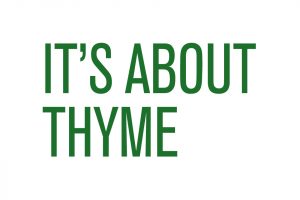By Chris Winslow
At ease disease, there’s a fungus among us…’ perfectly describes a host of plant disease problems that we are encountering after the wettest May on record here in central Texas, with 15.8 inches being the official tally from Austin’s airport.
Too much moisture, cooler days, and cloudy weather have all combined to bring out the plant pathogens.
From pictures sent to us, and samples that customers bring in to the nursery daily, we are seeing many serious cases of black spot, powdery mildew, sooty mold, root rot, brown batch, bacterial leaf spot, early blight, and a few problems that we’ve never even seen before.
Luckily for us we have quite a few natural and organic remedies for these plant problems. Please note: gardeners do not have to rely on the harsh and strongly toxic chemicals sold at some of the larger stores in the area that will poison us and our water supply. There are many gentler, more organic options available.
1. Dusting wettable sulfur combats powdery mildew and black spot on roses and vegetables. It also controls spider mites and thrips on rose foliage and flowers.
2. Horticultural grade corn meal works well on lawn diseases. It’s effective against take-all patch, grey spot, and brown patch.
3. Organicide 3-in-1 garden spray is a sesame seed and edible fish oil based spray that controls powdery mildew and black spot on roses and vegetables. It also controls soft-bodied insects like mites, scales, mealy bugs and fungus gnats without harming butterflies and bees.
4. Serenade lawn and garden spray uses the beneficial bacteria Bacillus subtillis to combat plant disease on lawns, roses, vegetable gardens, flowering plants, trees, and shrubs. We have found it very effective to use for powdery mildew, rust, and grey mold.
5. Actinovate is another effective biological spray. The spores of Streptomyces lydicus target summer patch, dollar spot, damping off, and take-all patch in lawns and gardens.
6. Bush Doctor ‘Force of Nature’ is a new product from Fox Farms. It controls mildew with cotton seed oil, garlic oil, and corn oil.
Using these products will help protect your lawn and garden without harming the environment. Just that alone should make us feel good. Happy gardening everyone!
If you have a question for Chris, send it via email to iathyme@yahoo.com. Or mail a postcard to It’s About Thyme11726 Manchaca Road, Austin, TX 78748 www.itsaboutthyme.com.





